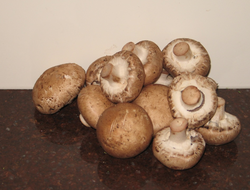Vitamins: An Overview
Published: October 22, 2021
Vitamins are organic, essential micronutrients.
The term "vitamins" is a shortened from of "vital amines" the original descriptor used to describe the compounds in food that are vital or essential for the functioning of your body and vital for life.
Amines are organic molecules and are closely related to amino acids which are the building blocks of proteins.
Organic has several definitions and in relation to the chemical structure of molecules such as amines refers to the carbon to carbon bonds and carbon - hydrogen bonds which organic molecules contain.
Amines also contain nitrogen.
The use of the word essential in relation to vitamins implies that not only are these compounds vital for life, but your body does not have the ability to synthesise this group of compounds.
Therefore, you must obtain vitamins from the food and beverages you consume.
All the vitamins you require can be obtained from food that is commonly available.
Different foods contain different amounts of various vitamins. By eating a variety of foods you can obtain the vitamins you require to maintain life.
As micronutrients, vitamins although essential for health, are only required in very small amounts measured either in milligrams (mg) or micrograms (mcg).
These small amounts of vitamins function in the myriad of metabolic pathways and reactions that occur in your body at any given moment.
The amount of any vitamin that you absorb from the food you eat depends on a variety of factors including vitamin bioavailability which refers to...link to the full article to learn more.
References
1.
Gropper, S.S., Smith, J.L. & Groff, J.L. (2005). Advanced Nutrition and Human Metabolism (4thEd.). Belmont, CA: Thomson Wadsworth.
2.
Whitney, E. & Rady Rolfes, S. (2005). Understanding Nutrition. Belmont, CA: Thomson Wadsworth

